- Home
- Stephen Hunter
Pale Horse Coming
Pale Horse Coming Read online
“THE BEST THRILLER
WRITER GOING TODAY.
MAYBE EVER.”
—Providence Journal Bulletin
NEW YORK TIMES
BESTSELLING AUTHOR
STEPHEN HUNTER
“One of our finest practitioners of the classic blood-soaked and propulsive American thriller.”
—The Washington Post
“One of the best storytellers of his generation.”
—San Francisco Examiner
“The best writer of straight-out thrillers working today.”
—Rocky Mountain News
“Passes almost everybody else in the thriller-writing trade as if they were standing still.”
—Daily News (New York)
“Genius.”
—Booklist
Praise for Stephen Hunter’s latest explosive
tale featuring Bob Lee Swagger,
THE 47TH SAMURAI
“The novel Hunter’s fans have been waiting for.”
—Booklist (starred review)
“Hunter is a great entertainer…. With fluid, confident prose, he writes big stories of a man, mostly alone, who must go forth for us all and slay the dragon.”
—The Washington Post
“Hunter writes [fight scenes] as well as, or better than, anyone in the business…. I have only one major problem: He doesn’t write often enough.”
—Otto Penzler, The New York Sun
“Riveting homage to the myth of the samurai…. While the action builds to the inevitable climax, the joy of the journey will keep readers turning the pages.”
—Publishers Weekly
And I beheld a pale horse: and his name
that sat on him was Death, and Hell
followed with him…
Praise for
PALE HORSE COMING
“Hunter is Robert B. Parker on steroids. Mickey Spillane with a thesaurus. He writes crime like no one before him.”
—The Denver Post
“Virtually un-put-downable gothic chiller.”
—Publishers Weekly
“Classic hard-boiled fiction…. Features some of Hunter’s best writing.”
—The Washington Post Book World
“Grippingly told and hauntingly described.”
—The Toronto Sun
“A top-notch thriller…. Cements Hunter’s status as the best thriller writer going today. Maybe ever.”
—Providence Journal Bulletin
“An amazing roller coaster of a ride…. Exciting and entertaining.”
—Times Record News (Wichita Falls, TX)
“[Hunter’s] blunt writing style hits you like the burst of a Thompson gun…. More than a cut above the usual shoot-’em-up thriller…. Gripping.”
—The News & Record (Greensboro, NC)
“Stunning…. Vivid and horrific.”
—St. Petersburg Times (FL)
BY STEPHEN HUNTER
Night of Thunder
The 47th Samurai
Havana
Pale Horse Coming
Hot Springs
Time to Hunt
Black Light
Dirty White Boys
Point of Impact
Violent Screen: A Critic’s 13 Years on
the Front Lines of Movie Mayhem
Target
The Day Before Midnight
The Spanish Gambit (Tapestry of Spies)
The Second Saladin
The Master Sniper
Pocket Star Books
A Division of Simon & Schuster, Inc.
1230 Avenue of the Americas
New York, NY 10020
This book is a work of fiction. Names, characters, places, and incidents either are products of the author’s imagination or are used fictitiously. Any resemblance to actual events or locales or persons, living or dead, is entirely coincidental.
Copyright © 2001 by Stephen Hunter
All rights reserved, including the right to reproduce this book or portions thereof in any form whatsoever. For information address Simon & Schuster Subsidiary Rights Department, 1230 Avenue of the Americas, New York, NY 10020
POCKET STAR and colophon are registered
trademarks of Simon & Schuster, Inc.
ISBN-13: 978-1-4391-2781-0
ISBN-10: 1-4391-2781-6
Visit us on the World Wide Web:
http://www.SimonSays.com
At last, for Jean
The belief in a supernatural source of evil is not necessary; men alone are quite capable of every wickedness.
—JOSEPH CONRAD
The human target element always stimulates interest.
—ED MCGIVERN
…and his name that sat on him was Death, and Hell followed with him.
—REVELATION 6:8
CONTENTS
ONE: Sam’s Journey
1
2
3
4
5
6
7
TWO: Earl’s Journey
8
9
10
11
12
THREE: All the Horses of Thebes
13
14
15
16
17
18
19
20
21
22
23
24
25
26
27
28
29
30
31
32
33
34
FOUR: The Old Men
35
36
37
38
39
40
41
42
43
44
45
46
47
48
49
50
51
52
53
54
55
56
57
58
59
FIVE: Dark of the Moon
60
61
62
63
64
65
66
67
68
69
70
71
72
73
74
75
ACKNOWLEDGMENTS
ONE
Sam’s Journey
1
IN mid-1947, Jefferson Barnes, the prosecuting attorney of Polk County, Arkansas, finally died. Upon that tragedy—the old man fell out of one of those new golf cart things on vacation in Hot Springs, rolled down a gully screaming damnation and hellfire all the way, and broke his neck on a culvert—Sam Vincent, his loyal Number 2, moved up to the big job. Then in ’48, Sam was anointed by the Democratic party (there was no other in western Arkansas), which ran him on the same ticket with Harry S. Truman and Fred C. Becker. As did those worthies, he won handily. For Sam, it was the goal toward which he had been aiming for many years. He had always wanted to be a servant of the law, and now, much better, he was the law.
Sam was six foot one, forty-four, with a bushy head of hair and a brusque demeanor that would not be called “lovable” for many years. He stared immoderately and did not suffer fools, idiots, Yankees, carpetbaggers, the small of spirit or the breakers of the law gladly. He wore baggy suits flecked with pipe ash, heavy glasses, and walked in a bounding swoop. He hunted in the fall, followed the St. Louis Browns during the summer, when he had time, which he hardly ever did, and tied flies, though he fished rarely enough. Otherwise, he just worked like hell.
His was classic American career insanity, putting the professional so far above the personal there almost was no personal, in the process alienating wife and children with his indifference, burning out secretaries with his demands, annoying the sheriff’s detectives with his directions. In what little time remained, he served on the draft board (he had won the Bronze Star during the Battle of the Bulge), traveled five states to interview promising high school seniors who had applied to his beloved Princeton, played a weekly round of golf with the county powers at the country club, and drank too much eight-year-old bourbon. He knew everybody; he was respected by everybody. He was a great man, a great American. He had the highest conviction rate of any county prosecutor in Arkansas, Oklahoma, Missouri, or Tennessee for that matter.
He was not reelected. In fact, he lost in a landslide to a no’count lawyer named Febus Bookins, a genial hack who smelled of gin all the time and meant only to rob the county blind during his term of office. He called himself a reformer, and his goal was to reform his bank account into something more respectable.
Sam had made one mistake, but it was a mistake which few in his home state, and in fact not many elsewhere, could ignore. In 1949, he prosecuted a man named Willis Beaudine for raping a young woman named Nadine Johnson. It was an unremarkable case, save for the fact that Willis was a white person and Nadine a Negro girl. It is true she was quite light, what some would call a “high yeller,” and that she had comely ways, and was, perhaps, not normally so innocent as she looked when she appeared in court. But facts were facts, law was law. Certain evidence had been developed by Sam’s former investigator, Earl Swagger, who was now a state police sergeant and was famous for the big medal he had won during the war. Earl, however, risked nothing by testifying against Willis, for Earl was known to be a prideful, bull-headed man who could not be controlled by anyone and was feared by some. Sam, on the other hand, risked everything, and lost everything, although Willis was convicted and spent six months at the Tucker Farm. As for Nadine, she moved from town because even in her own community she was considered what Negro women called a “’ho,” and moved to St. Louis, where her appetites soon got her murdered in a case of no interest to anyone.
Sam had taken his defeat bitterly. If his family thought he would see them more often, they were mistaken. Instead, he rented a small office on the town square of Blue Eye, the county seat, and commenced to spend most of his days and many of his nights there. He worked such small cases as came his way, but mainly he plotted out ways to return to office. He still hunted with Earl. His other friend was Connie Longacre, the smart Eastern woman whom the county’s richest, most worthless son had brought back from his education at Annapolis in ’30 and his failed naval career thereafter. Connie had soon learned how appetite-driven a man her Rance was, and while trying to raise her own hellion son, Stephen, fell to friendship with Sam, who alone in that part of Arkansas had been to a Broadway play, had met a gal under the clock at the Biltmore, and who didn’t think Henry Wallace was a pawn of the Red Kremlin.
Sam was never stupid, not on a single day in his life. He understood that one thing he had to do was to regain the trust of the white people. Therefore he utterly refused to take any cases involving Negroes, even if they only revolved around one dark person suing another. There was a Negro lawyer in town, a Mr. Theopolis Simmons, who could handle such things; meanwhile, Sam worked hard, politicked aggressively, kept tabs, sucked up to the gentry who had deposed him so gently, and tried to stay focused.
Then, one day in June of 1951, an unusual event occurred, though nothing in that day or the day or week before had suggested it would. Sam, alone in his office, worked through probate papers for a farmer named Lewis who had died intestate and whose estate was now being sued for back taxes by the state, which would drive his widow and four children off the property to—well, to nothing. Sam would not let this happen, if only he could figure out a way to—
He heard the door open. In the county’s employ he had always had a secretary; now, on his own, he didn’t. He stood, pushed his way through the fog of dense pipe smoke, and opened the door to peer into his anteroom. An elegant gentleman had seated himself on the sofa and was paging absently through an old copy of Look magazine.
“Sir, do you have an appointment?” Sam asked.
The man looked up at him.
He was tanned softly, as if from an expensive vacation at the beach, balding, and looked well tended, of an age that could have been anywhere between thirty and fifty. He was certainly prosperous, in a smooth-fitting blue pinstripe suit, a creamy white shirt and the black tie of a serious man. A homburg, gray pearl, lay on the seat beside him; his shined shoes were cap-toed black bluchers, possibly bespoke, and little clocks or flowers marked his socks. The shoes were shined, Sam noticed, all the way down to the sole, which was an indication that a professional had done them, in a rail station, a hotel lobby, a barbershop.
“Why, no, Mr. Vincent. I’d be happy to make one, or if you prefer, to wait here until you have the time to see me.”
“Hmm,” said Sam. He knew when money came to call.
“I am currently in the throes of a case,” he said. “Mr., ah—”
“My name is Trugood, sir.”
“Mr. Trugood. Have you a few minutes while I file and clear my desk?”
“Of course. I don’t mean to interrupt.”
Sam ducked back in. Quickly he gathered the Lewis papers up, sealed them in a file, and put it into a drawer. His desk was a mess; he did some elementary rearranging, which meant he’d have to derearrange after the man left, but Sam could use a fee, he didn’t mind admitting, for any return from the poor Lewises, or the Jenningses, or the Joneses, the Smiths, the Beaupres, the Deacons, the Hustons, all that was in a future that seemed quite distant. More or less prepared, he removed a fresh yellow legal tablet from his cabinet and wrote the word TRUGOOD, and the date, atop it.
He opened the door.
“Sir, I can see you now.”
“Thank you, Mr. Vincent.”
Trugood stood elegantly, smiled at Sam as he walked through the door, pretended not to notice the debris, the mess, the strewn files, the moth-eaten deer’s head, or even the fog of sweetbriar gas that hung, almost moist, in the air.
Sam passed him, gestured to a seat, and as he moved around the desk to sit, watched as the man placed a business card before him on the desk.
“Ah,” said Sam. “A colleague.”
“Indeed,” said the man, whose card announced him to be Davis Trugood, Esq., of the firm of Mosely, Vacannes & Destin, 777 North Michigan Avenue, Chicago, Illinois, Hillcrest 3080.
“Mr. Trugood? I am at your service.”
“Thank you, Mr. Vincent. May I say, I’ve heard a great deal about you, and I’ve worked some to find you.”
“I’ve always been here, sir. I had no idea any reputation had spread beyond our little benighted state. Certainly not as far as a big sophisticated city like Chicago.”
“Well, sir, possibly it hasn’t reached that far. But it has reached all through the South, or, I should say, a certain South.”
“What South would that be, sir?”
“That South occupied by our population of color, sir. Our Negroes. They say you are the rare white lawyer who is fair to the man of Negro blood.”
“Well,” said Sam, somewhat taken aback, “if by that they mean that as a prosecuting attorney I laid the same force of law against white as against black, then they are correct. I believe in the law. But do not understand me too quickly, sir. I am not what you might call a race champion. I am not a hero of the Negro, nor do I ever mean to be. I believe history has dealt our American Negroes a sorry hand, as do many people. But I also believe that sorry hand will have to be corrected slowly. I am not one for tearing things down in service to various dubious moral sentiments, which in fact would turn my own race against me, which would unleash the savagery of the many embittered whites of the South against the poor Negro, which would in fact result
in destruction everywhere. So, Mr. Trugood, if you thought I was someone to lead a crusade, change or challenge a law, throw down a gauntlet, burn a barn, sing a hymn, or whatever, why, I am not that man, sir.”

 Point of Impact
Point of Impact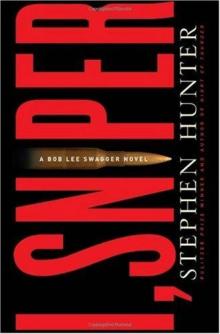 I, Sniper
I, Sniper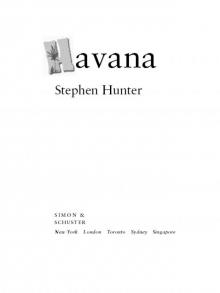 Havana
Havana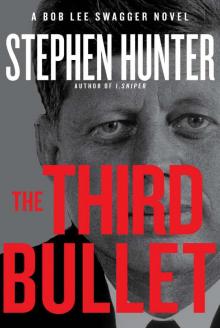 The Third Bullet
The Third Bullet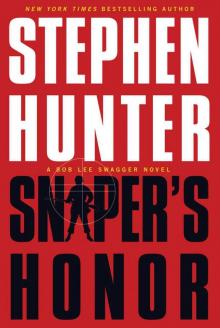 Sniper's Honor: A Bob Lee Swagger Novel
Sniper's Honor: A Bob Lee Swagger Novel Dirty White Boys
Dirty White Boys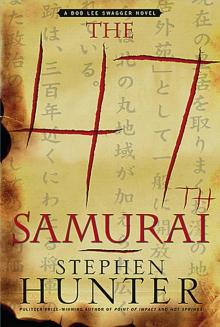 The 47th Samurai
The 47th Samurai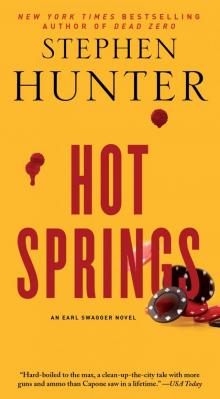 Hot Springs
Hot Springs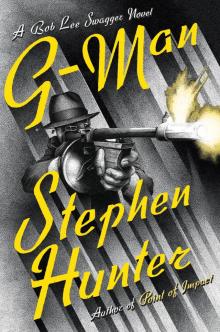 G-Man
G-Man Black Light
Black Light Time to Hunt
Time to Hunt The Day Before Midnight
The Day Before Midnight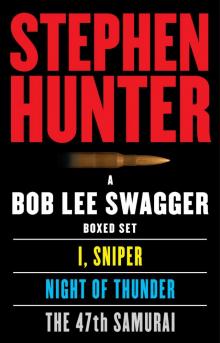 A Bob Lee Swagger Boxed Set
A Bob Lee Swagger Boxed Set The Master Sniper
The Master Sniper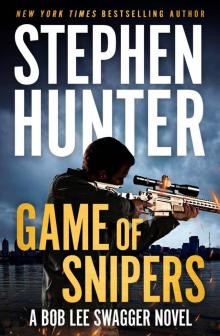 Game of Snipers
Game of Snipers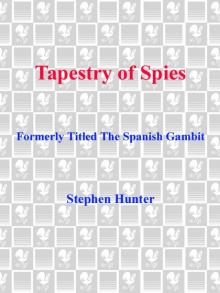 Tapestry of Spies
Tapestry of Spies Citadel
Citadel The Second Saladin
The Second Saladin Stephen Longacre's Greatest Match
Stephen Longacre's Greatest Match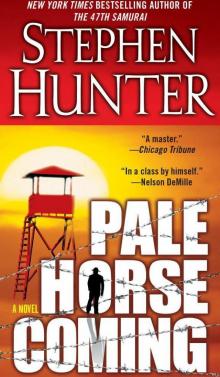 Pale Horse Coming
Pale Horse Coming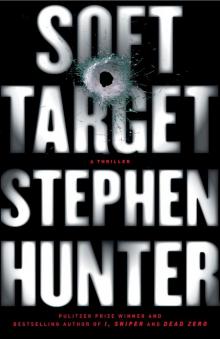 Soft Target
Soft Target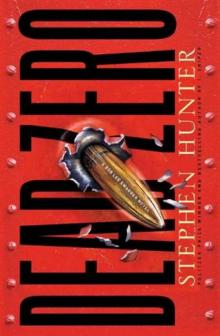 Dead Zero
Dead Zero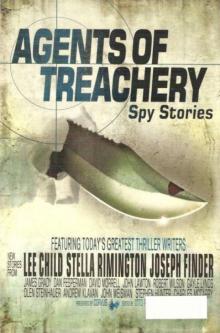 Casey at the Bat
Casey at the Bat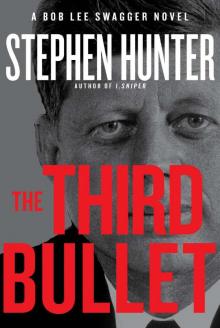 The Third Bullet bls-8
The Third Bullet bls-8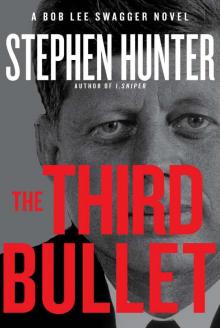 The Third Bullet: A Bob Lee Swagger Novel
The Third Bullet: A Bob Lee Swagger Novel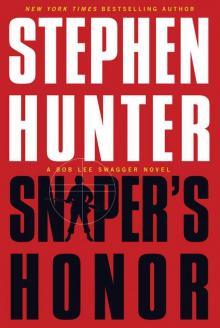 Sniper's Honor
Sniper's Honor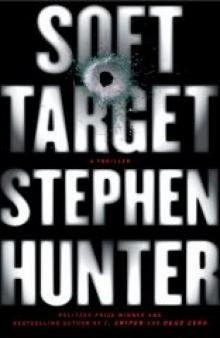 Soft target rc-1
Soft target rc-1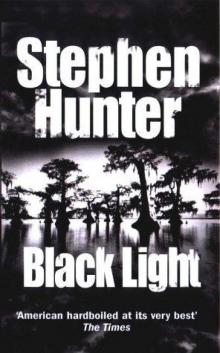 Black Light bls-2
Black Light bls-2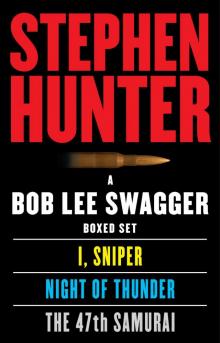 A Bob Lee Swagger eBook Boxed Set: I, Sniper, Night of Thunder, 47th Samurai
A Bob Lee Swagger eBook Boxed Set: I, Sniper, Night of Thunder, 47th Samurai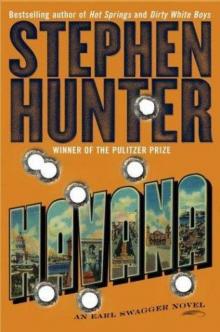 Havana es-3
Havana es-3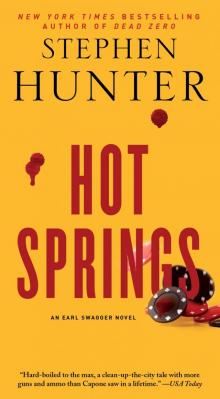 Hot Springs (Earl Swagger)
Hot Springs (Earl Swagger)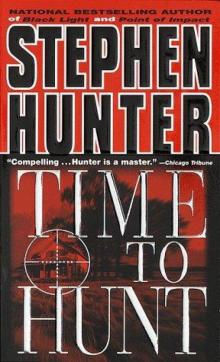 Time to Hunt bls-1
Time to Hunt bls-1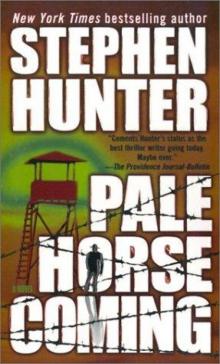 Pale Horse Coming es-2
Pale Horse Coming es-2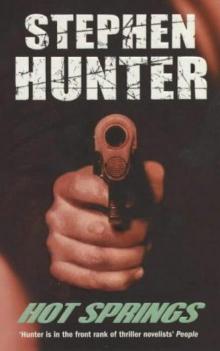 Hot Springs es-1
Hot Springs es-1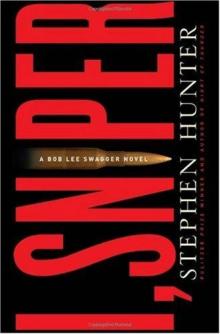 I, Sniper: A Bob Lee Swagger Novel
I, Sniper: A Bob Lee Swagger Novel